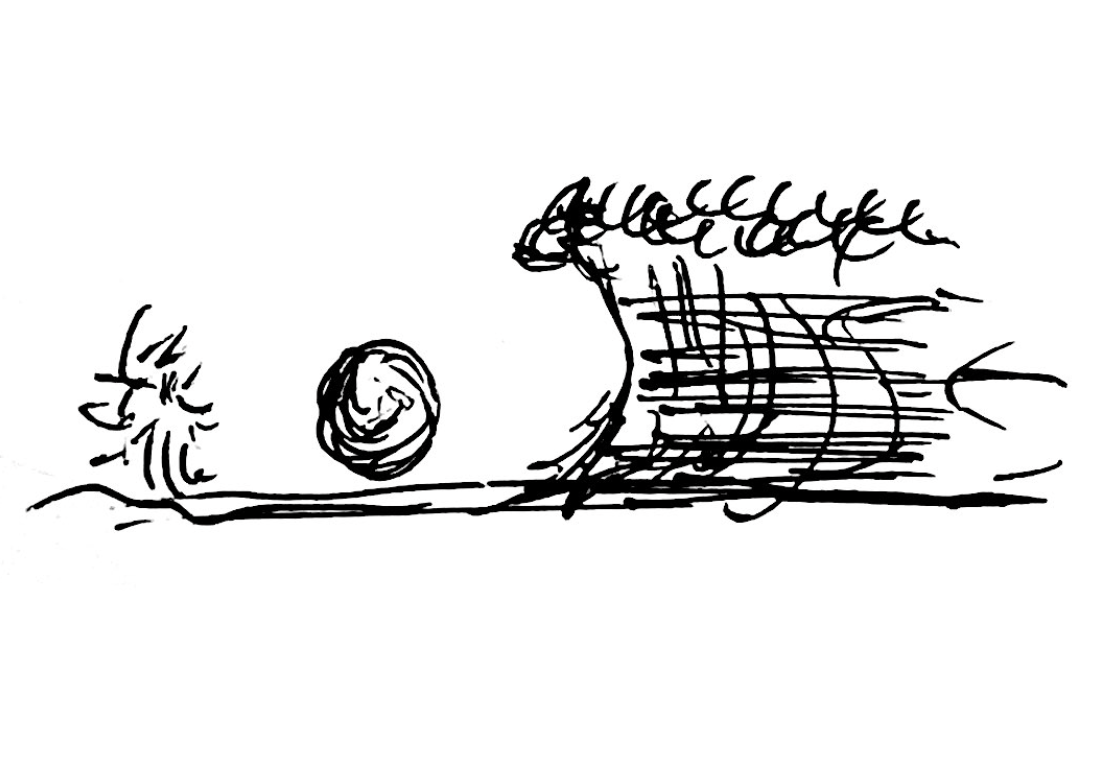Chopin’s Raindrop Prelude Op. 28 No. 15 puts me into a contemplative mood; I look outside the window, as if it were drizzling softly, and I see my past play out in front of me, on a heavenly tapestry, receding into a source of light in the distance. As such, I contemplate my past to see if I can derive meaning; my inclination is to group it by decades.
The first 10 years are a display of joy, curiosity, exploration in all directions, without much limit; it’s the purest, most fundamental essence of life imaginable. It’s when I developed a huge attraction towards mathematics, the language of the universe; it’s when life seemed most like a large but unified cluster, a highly viscous ether or liquid. I was frequently happy, my burdens low, my heart sunny, just as the famous Heintje song goes1. Because of the unified, omnidirectional existence, I liken my first decade to mist. Such is the beginning of Chopin’s prelude: soft, drizzly, hopefully never-ending.
Ages 10 to 19 allow a ‘condensation’ of that mist, a chance to solidify and venture deep into certain paths within the watery world. God never said it had to be down one path, so I expanded my knowledge down mathematics, music, geography, physics, and languages primarily. It was great possessing information and using it in conversation and finding meaning. Naturally, this was the age of competitions; I battled with others across many fields, from math to spelling. Isn’t this period of life just one giant snowball fight, with the dense packing of snow the accumulation and solidification of knowledge, and the smash of the snowball against opponents the desire to outcompete the other? In Chopin’s prelude this is when the G#-minor sharp unison hits, as the rain becomes painful, like…snowballs.
And now, as I start my third decade, I see the themes ‘philosophy’ and ‘depth’ repeatedly. Philosophy, as we are now sufficiently mature to combine—and know how to combine—our knowledge and desire for beauty, greatness, and justice. Depth, as it is now our obligation, as mature individuals2, to sustain inquiry into a field (especially technical ones), to get to the root of it, and to hopefully come back out with discoveries galore. I don’t doubt that my 20s will be marked with great realizations, identity turbulence3, and shifting views about my role on this planet. As a result, I must categorize the sweeping and intense nature of my current adventures as a tsunami.
Chopin’s prelude never had a tsunami. That was Chopin in the “Torrent” etude, or Beethoven, in the 3rd movement of the famous Moonlight Sonata4. Perhaps, due to my youth5, I did not pick the right piece, or I misrepresented the third decade of life and it isn’t so dramatic, or the prelude simply skips over ages 20-60 and concludes with the calm ocean of seniority. But I won’t know, and I can only reflect on the rainfall of life after I have experienced it. Thus, it is time to say goodbye to the windowsill and get back to MIT…6
Footnotes
1 The song is “Kleine Kinder, Kleine Sorgen”; the lyrics reference “ein Haus voll Sonnenschein” (a house full of sunshine) and “die kleinen, lieben Sorgen” (the small, lovely worries). The song is also incredibly popular in China, where it is known as “小小少年”.
2 As one of my French friends always says, “I’m a grown-ass person!”
3 regardless of marital status, though I would be too young to know
4 In fact, the 1980s Smurfs cartoons always used this stormy C#-minor piece for stormy weather and floods!
5 relatively speaking
6 See my article "Prosperity at MIT" for my current attitude and approach towards MIT.
